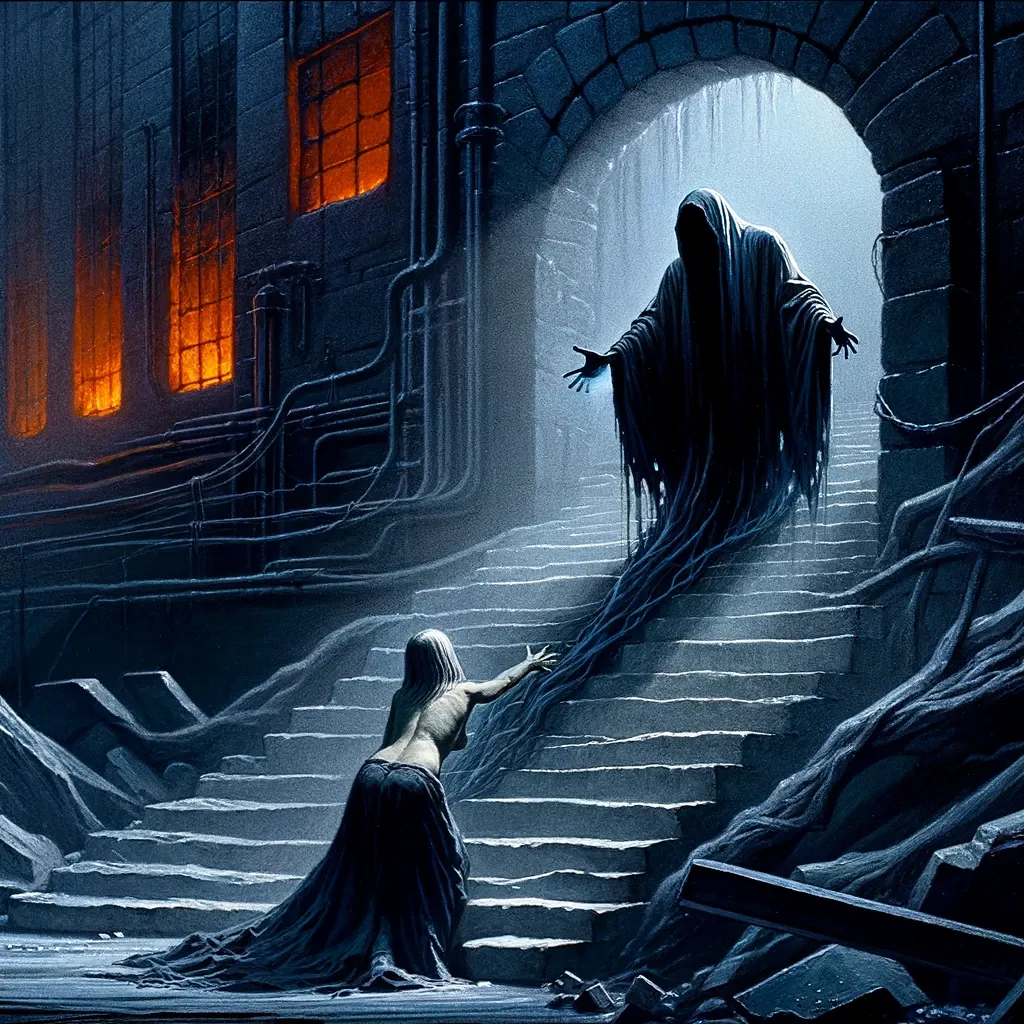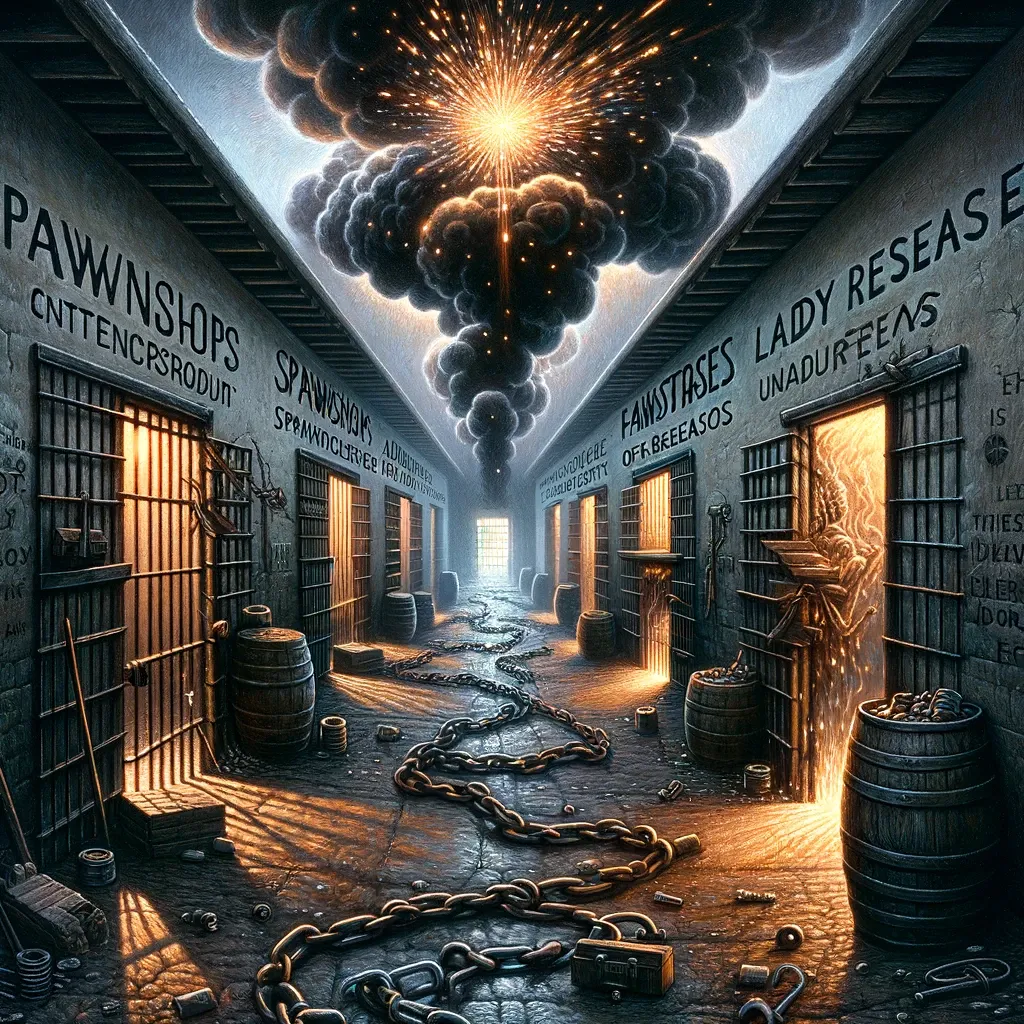Joni Mitchell - "Cold Blue Steel"
In her hauntingly poignant song, "Cold Blue Steel and Sweet Fire," Joni masterfully paints a vivid and heart-wrenching picture of the struggles faced by those caught in the unrelenting grip of addiction

The Struggle of Addiction
I imagine this one as her answer to her countryman Neil Young's 'Needle and the Damage Done. " With her depiction of "Cold Blue Steel" and "Sweet Fire" in her lyrics is a testament to her profound understanding of the dualities that addiction encompasses. It's a vivid illustration of the physical and emotional chill that substance abuse casts over a person’s life.
Sweet Fire, which she uses to convey the seductive yet destructive nature of heroin. This is a flame; it's a siren call, enticing with its warmth and promise of escape, only to consume everything in its path. Joni doesn't shy away from showing how this allure can pull individuals deeper into the abyss, making every other aspect of life dim in comparison.
Her exploration of addiction's landscape is both poetic and harrowing, creating a powerful narrative that mirrors the desolation and despair Neil Young touched upon. Yet, in Joni's hands, these elements gain a visceral intensity, painting a picture of the journey down addiction's dark ladder with a starkness and sincerity that's hard to ignore.
Through her art, Joni not only narrates the struggle but also delves into the insidiousness of addiction, how it whispers false promises of release and relief. The dialogue she imagines, "Come with me / I know the way... down, down, down the dark ladder," serves as a chilling invitation to a journey from which many never return. It’s a narrative that doesn’t just describe addiction; it embodies the very essence of its trap, the way it beckons and then ensnares, leaving behind a trail of loss and desolation.
Joni Mitchell, like Neil Young, doesn't just sing about addiction; she reveals its very soul, laying bare the conflict between the coldness of the needle and the deceptive warmth of the fire. Her work invites us to look beyond the surface, to understand the depth of the battle faced by those caught in addiction's hold.

The narrative deepens as Joni introduces "a Black soot of lady release," personifying the drug as a dark figure offering a twisted form of liberation. Her words, "Come with me / I know the way," echo the deceptive allure of addiction, portraying it as a guide into the abyss, leading one "down, down, down the dark ladder." This descent is not just a physical journey but a metaphorical plunge into the depths of despair and dependency.
The chilling invitation, "Do you want to contact somebody first / Does it really matter / If you come now / Or if you come on later?" underscores the urgency and inevitability that addiction can impose on one's life decisions. It’s a portrayal of the consuming nature of addiction, where the urgency to succumb often overshadows connections to the outside world, presenting a false dichotomy of timing that ultimately leads to the same dark destination.
She’s painting a haunting landscape of addiction's grip on the soul. The imagery of cold steel and seductive fire, the personification of the drug as a guiding lady into darkness, all serve to highlight the insidious battle faced by those caught in addiction's snare.
Joni masterfully paints a vivid and heart-wrenching picture of the struggles faced by those caught in the unrelenting grip of addiction. The opening lines, "Cold Blue Steel out of money / One eye for the beat police / Sweet Fire calling, 'You can't deny me / Now you know what you need,'" poignantly capture the desperation and all-consuming temptation that engulfs an addict's mind when the craving for the drug's fleeting relief becomes overpowering. The imagery of the gun, or spoon, personified as "Cold Blue Steel," and the flame used to cook the heroin, given the moniker "Sweet Fire," is at once both poetic and deeply unsettling, serving to highlight the all-encompassing nature of addiction and the way in which it can eclipse all other aspects of an individual's life.
The Struggle of Addiction In "Cold Blue Steel and Sweet Fire," Joni Mitchell delves into the harrowing depths of addiction, painting a vivid and heart-wrenching picture of the struggles faced by those caught in its unrelenting grip. The song's opening lines, "Cold Blue Steel out of money / One eye for the beat police / Sweet Fire calling, 'You can't deny me / Now you know what you need,'" are a masterful encapsulation of the desperation and all-consuming temptation that engulfs an addict's mind when the craving for the drug's fleeting relief becomes overpowering.
The imagery employed in these lines is both poetic and deeply unsettling, with the needle or gun, personified as "Cold Blue Steel" and the flame used to cook the heroin given the moniker "Sweet Fire." This juxtaposition of the cold, hard reality of addiction with the sweetly seductive allure of the drug that consumes and destroys all like a fire, highlights the insidious nature of substance abuse and the way in which it can eclipse all other aspects of an individual's life.
The needle/gun/pseudonym, "Cold Blue Steel," is a chilling representation of the physical and emotional coldness that addiction can bring, as well as the financial desperation that often accompanies it. The phrase "out of money" underscores the way in which addiction can drain an individual's resources, leaving them with nothing but the desperate need for the next fix.
The "one eye for the beat police" line speaks to the constant fear and paranoia that plague those in the throes of addiction, as they navigate a world where their actions are criminalized and their every move is watched. This sense of being hunted, of always having to look over one's shoulder, adds to the suffocating desperation that permeates the song.

Finally, the personification of heroin as "Sweet Fire" is a haunting reminder of the drug's seductive power, how it calls to the addict with a siren song of promised relief and escape. The line "You can't deny me / Now you know what you need" captures the way in which addiction can override an individual's free will, making them feel as though they have no choice but to succumb to the drug's demands
Most of Joni Mitchell's music, and "Cold Blue Steel and Sweet Fire" in particular, serves as a powerful reminder that we are all connected, and that the struggles of one are the struggles of all. By heeding the call to action that resounds throughout her work, and by embracing the power of small steps to create change, we can work together to build a world where compassion, understanding, and love triumph over the darkness of addiction and despair.
The line "one eye for the beat police" is a powerful and evocative representation of the constant state of fear and paranoia that those in the grip of addiction often experience. The metaphor of having one eye always watching for the police encapsulates the sense of being perpetually hunted, always on guard against the ever-present threat of being caught and punished for one's actions.
This imagery speaks to the way in which addiction can transform an individual's entire world, forcing them to navigate a landscape where their every move is scrutinized and their actions are criminalized. The "beat police" represent not only the literal law enforcement officers who may be pursuing them but also the broader societal judgment and condemnation that those struggling with addiction often face.
The subsequent lines of the song further underscore the depths of desperation and the all-consuming nature of addiction. The siren song of "Sweet Fire," personified as the seductive and irresistible call of heroin, lures the addict deeper into the abyss, promising relief from their suffering even as it drags them down into darkness.
The imagery of the "dark ladder" and the haunting invitation to "come now or come later" capture the sense of inevitability and the feeling of being trapped in a downward spiral from which there seems to be no escape. The mention of contacting someone or leaving a letter serves as a chilling reminder of the high stakes involved and the very real possibility of losing one's life to the disease of addiction.
As the song progresses, the images of pawned possessions, "a wristwatch, a ring, a downstairs screamer," paint a vivid picture of the financial ruin and material desperation that often accompany addiction. The "edgy black cracks of the sky" and the "pin-cushion-prick" of the needle further emphasize the bleak and harrowing reality of life in the throes of substance abuse.

The final lines of the passage, with their mention of "pawnshops crisscrossed and padlocked" and "corridors, spit-on prayers and pleas," underscore the sense of entrapment and the desperate, futile search for a way out. The image of "sparks" flying up from "Sweet Fire" and the "black soot of Lady Release" serve as a powerful and poignant reminder of the destructive power of addiction and the way in which it can consume and blacken everything in its path.
Through her vivid and emotionally charged imagery, Joni Mitchell captures the essence of the struggle of addiction, laying bare the pain, desperation, and all-consuming nature of this disease. By shining a light on this often misunderstood and stigmatized aspect of the human experience, she calls upon us to respond with compassion, understanding, and a commitment to supporting those who are fighting this battle.
In illuminating the harsh realities faced by those in the grip of addiction, Mitchell's poetry serves as a powerful call to action, urging us to confront our own biases and preconceptions and to work towards creating a society where those who are struggling can find the help, support, and understanding they need to reclaim their lives and their dignity.
The constant fear of being discovered, arrested, or ostracized can be all-consuming, adding to the already overwhelming stress and desperation that characterize the experience of addiction. This perpetual state of heightened vigilance can take a profound toll on an individual's mental and emotional well-being, further compounding the challenges they face in their struggle to break free from the cycle of substance abuse.
Moreover, the criminalization of addiction and the punitive approach often taken by society can serve to further isolate and stigmatize those who are already in a vulnerable and precarious position. Rather than offering compassion, understanding, and support, this stance can drive individuals deeper into the shadows, making it even more difficult for them to seek the help they so desperately need.
It falls upon us, as members of a compassionate and interconnected society, to offer those in need the strength, resources, and unconditional love they need to overcome their demons and reclaim their lives. By approaching these challenges with an open heart, a willingness to listen without judgment, and a deep commitment to understanding the complex tapestry of human experience, we can make a truly meaningful difference in the lives of others.




Comments ()